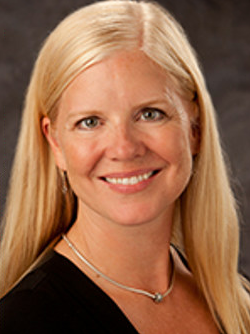The best health care experience is found in the most appropriate care facility – whether that be a primary provider’s office, urgent care, or emergency department.
This is especially true during the holiday season, with more visitors in the area and the current uptick in flu cases, surge in respiratory syncytial virus (RSV), and the threat of another surge of COVID-19.

“Many primary care offices now offer same-day appointments as well as on-call weekend hours,” she said. “Contacting your primary care provider whether that is a family medicine, pediatric, or internal medicine provider should be everyone’s first choice with non-emergency conditions, even after hours.”
Primary care providers can help with allergies and minor allergic reactions, asthma, cold and flu symptoms, management of chronic conditions, mild fevers, sprains, aches, fractures, and much more. These providers also can help coordinate specialty services that one might need. Many offices also offer virtual visits for added convenience.
Urgent Care or Walk-In clinics are meant to fill that gap when one’s regular doctor is unavailable – such as an evening or weekend. Here are a few situations when urgent care is appropriate: an allergic reaction with widespread swelling and itching; breathing difficulties such as mild to moderate asthma; cuts that do not have much blood but require stitches; minor broken bones; significant or increasing pain, especially with fever; flu; ongoing fever lasting two or more days; vomiting, diarrhea, or dehydration. Munson Healthcare also offers Virtual Urgent Care, to learn more go to munsonhealthcare.org/virtualurgentcare.
Emergency room visits are meant for serious needs such as extreme difficulty breathing, chest pain that could be a warning of a heart attack, stroke symptoms, coughing or vomiting blood, major bone breaks, possible concussions, possible drug overdose, seizures, severe burns, injured spinal cord, evaluation for assault or physical or sexual abuse, sudden dizziness, or thoughts of suicide or self-harm.
Dr. Nefcy advises anyone in a severe or life-threatening situation to call 9-1-1. Life-saving care can begin in an ambulance with pre-hospital paramedic care.
Anyone with questions about their medical condition who do not know where to go can call the Munson Healthcare Ask-A-Nurse line at 231-935-0951.
Learn more about Munson Healthcare services across the region at munsonhealthcare.org.